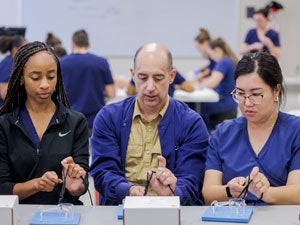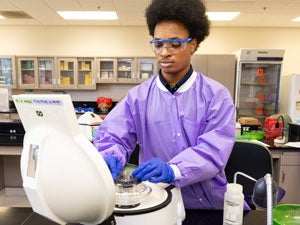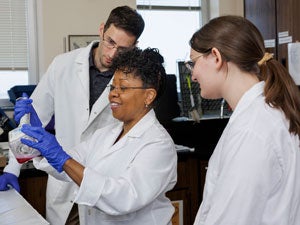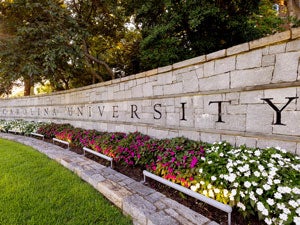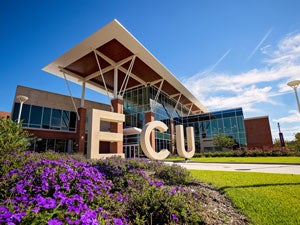Story Ideas
East Carolina University achieves R1 status, joins nation’s elite universities
GREENVILLE, N.C. (2/13/2025) — East Carolina University has reached a historic milestone, earning the prestigious Research 1 (R1) designation—placing it among the nation’s top-tier research universities. This recognition, announced this week by the American Council on Education and the Carnegie Foundation for the Advancement of Teaching, solidifies ECU’s place as a top institution.
Achieving R1 status marks the culmination of years of strategic investment in research infrastructure, external funding growth and interdisciplinary collaborations that fuel groundbreaking discoveries. From discovering therapeutic cancer treatments, how teams function in high pressure environments, improving health care access in rural communities and much more, ECU researchers are tackling some of the most pressing challenges of our time.
“East Carolina University’s designation as an R1 institution is a testament to the incredible dedication and hard work of our faculty, staff and students,” said ECU Chancellor Philip Rogers. “Our university’s success in research is a direct reflection of our mission—advancing student success, public service and regional transformation. This milestone will open doors to more opportunities for collaboration, discovery and academic excellence.”
Beyond research at the graduate level, ECU offers hands-on undergraduate research opportunities rarely found at other institutions. From day one, students engage in real-world problem-solving through programs like Maximizing Access to Research Careers (MARC), reinforcing ECU’s commitment to encouraging future scholars.
In 2023 alone, ECU invested $67.1 million in research expenditures, with a four-year total surpassing $326.7 million. Additionally, the university allocated $8.9 million to graduate student research funding in 2024, underscoring its dedication to developing the next generation of innovators.
“R1 status is a major achievement not just for the university, but for the entire region,” said Dr. Sharon Paynter, interim chief research officer at ECU. “It will bring new resources, new collaborations and new opportunities that will help address global challenges while strengthening the local economy. We are excited for what the future holds.”
With this new designation, ECU is poised to expand its impact, driving research that improves lives in North Carolina and around the world.
###
About East Carolina University
East Carolina University offers more than 85 bachelor’s, 68 master’s and 13 doctoral degrees to nearly 27,000 students on its Greenville, North Carolina, campus and through an acclaimed online learning program. The university’s school of medicine is recognized nationally for producing primary care physicians, cardiovascular research and advanced robotic surgery, as well as obesity and diabetes breakthroughs. ECU also boasts the largest business school enrollment and largest number of new nurses and education professionals produced by a four-year North Carolina university, in addition to the largest studio art program in the state. The university has a globally recognized academic underwater archaeology program and enjoys a supportive relationship with the U.S. military services. Located near Atlantic coast harbors where pirates once roamed, ECU adopted the “Pirates” mascot in 1934 for its athletics programs and competes in NCAA Division 1.
East Carolina University News Services
Howard House, 1001 E. Fifth Street
Greenville, NC 27858
ecunews@ecu.edu
Phone: 252-328-6481
news.ecu.edu
Campus Photos
Please attribute to ECU News Services when publishing.

